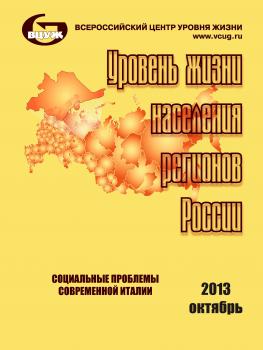В своем сообщении я хочу представить 10 тезисов по теме «Будущая работа в XXI столетии». По каждой гипотезе дается предложение, как реагировать в данных конкретных условиях развития. Мои примеры касаются главным образом стран Западной Европы, которые в наибольшей степени вовлечены в развитие глобального капитализма. Однако, мы полагаем, что представленные нами эволюция и проблемы в обозримом будущем будут иметь место во всем мире. Моим всеобъемлющим исходным положением является то, что в течение последующих нескольких лет тенденции социальной неопределенности с социального неравенства, вызванные глобальным и преобразованным в цифровую форму капитализмом, резко увеличатся. В своей работе я использую метод классической критической теории Хоркельнера-Адамо, который предполагает анализ существующих государств и формирования – даже утопических – будущих государств.
прекаритет, социальная неопределенность, работа, технический прогресс, знания, социальные патологии, исключение.
Precarity: from periphery to center of society
Th e current developments in the world of work in Western European societies are an indicator of all leading and rising industrialized countries (especially Russia). Precarious working and living conditions — mainly characterized by uncertainty concerning planning and future — were fi rst classifi ed as a phenomenon of lower social milieus. Recently, precarious situations have gradually attained the center of societies. Fixedterm work contracts, temporary work, on-call employment, and other forms of precarious employment contracts are not only a feature of unskilled workers, but to fi nd at all levels of employment.
Particularly in the UK, France and Germany, more and more people are aff ected by precarious working conditions and, to that effect of precarious living conditions. As French sociologist Robert Castel (2011) describes, this precariousness is associated with the abolition of social gains –for that workers have fought in countless industrial disputes — and the dismantling of the welfare state.
1. Boltanski. Luc/Chiapello, Éve: Der neue Geist des Kapitalismus (2003). Konstanz: UVK.
2. Bourdieu, Pierre /Wacquant, Loic (2000): Schöne neue Begriff swelt. Le Monde diplomatique, 12.05.2000.
3. Bourdieu, Pierre (2004): Der Staatsadel. Konstanz: UVK.
4. Bourdieu, Pierre et. al (1997): Das Elend der Welt. Zeugnisse und Diagnosen alltäglichen Leidens an der Gesellschaft. Konstanz: UVK.
5. Castel, Robert (2011): Die Krise der Arbeit. Neue Unsicherheiten und die Zukunft des Individuums. Hamburg: Hamburger Edition.
6. Ehrenberg, Alain (2011): Das Unbehagen der Gesellschaft. Berlin: Suhrkamp.
7. Foucault, Michel: Überwachen und Strafen (1994). Frankfurt am Main: Suhrkamp.
8. Häni, Daniel / Schmidt, Enno (2008): Grundeinkommen. http://www.forum-grundeinkommen.de/fi lmebge/grundeinkommen-filmessay-daniel-haeni-ennoschmidt.
9. IFR Statistical Department (2014): World Robotics - Industrial Robots 2014.
10. http://www.worldrobotics.org/uploads/media/Executive_Summary_WR_2014_02.pdf
11. Jung, Alexander / Schulz, Thomas (2015): Der Maschinen-Schwarm. SPIEGEL 10/2015.
12. Lyotard, Jean-Francois (1979): Das postmoderne Wissen. Wien: Passagen.
13. Schultheis, Franz/Schulz, Kristina (Hrsg.) (2005): Gesellschaft mit begrenzter Haftung. Zumutungen und Leiden im deutschen Alltag. Konstanz: UVK.
14. Schultheis, Franz/Vogel, Berthold/Gemperle, Michael (Hrsg.) (2010): Ein halbes Leben. Biografi sche Zeugnisse aus einer Arbeitswelt im Umbruch. Konstanz: UVK.
15. Wacquant, Loic / Bourdieu, Pierre (1992): An Invitation to Refl exive Sociology. Chicago: The University of Chicago Press.





